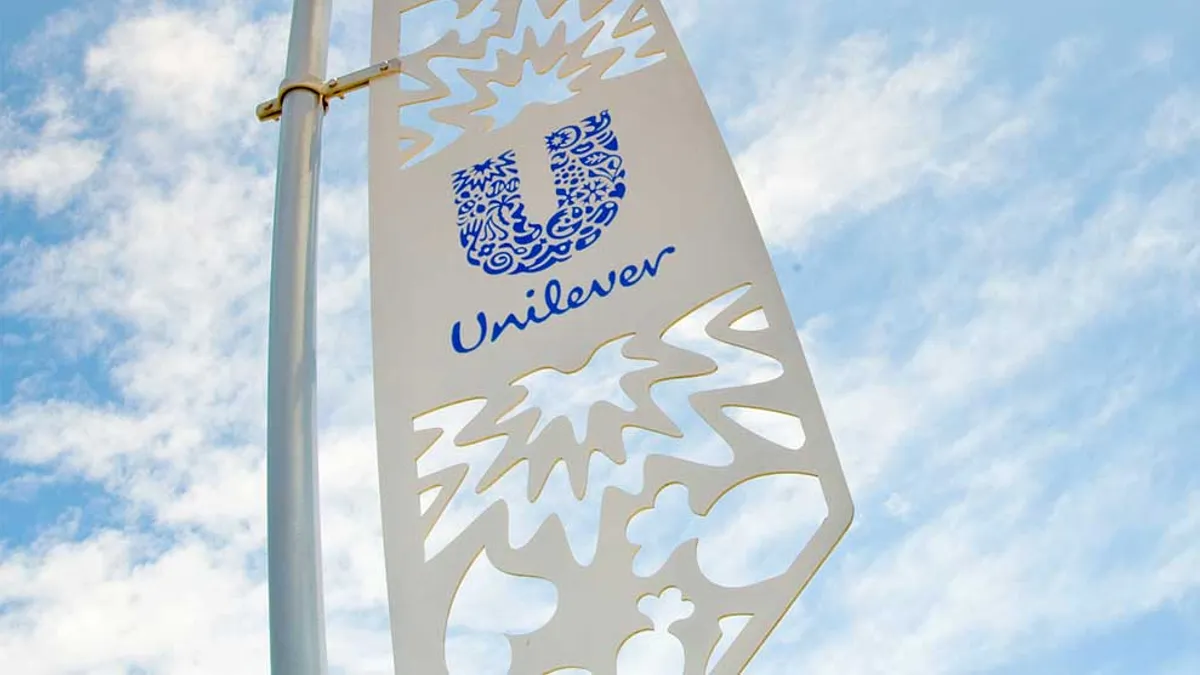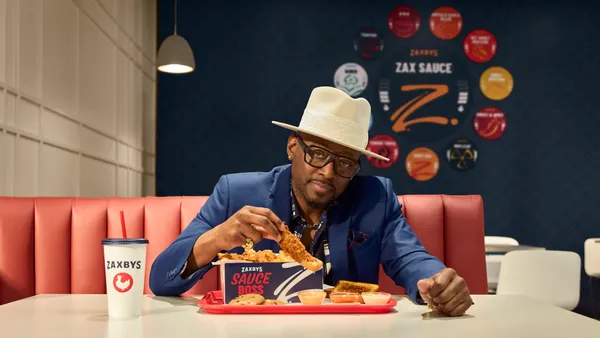Measuring marketing success in 2020 comes with some heavy caveats, as no business has weathered the year without experiencing disruptions related to the pandemic, protests or whorl of discord around these developments. But if the boat has been rocked for Unilever, the fast-moving consumer goods giant hasn't really shown it, even as it goes through a structural unification to boot.
In both its consumer-facing messaging and on critical business fronts like e-commerce, the marketer behind household brands such as Dove, Ben & Jerry's and Hellmann's has made the most of a volatile moment, going a step further than competitors to forward important social discussions while investing in the back end in technology that meets the needs of homebound consumers.
"One of the unusual features of this crisis is how it feels like the world is at a complete standstill, and yet things are changing at extraordinary speed," Unilever chief executive Alan Jope said earlier this year during a trading update. "It's also in this context that we're discovering the true responsiveness of Unilever, and the value of our closeness to consumers and markets in the many countries around the world where we do business."
Jope's read on the situation holds up well into the thick of the pandemic. Unilever's underlying sales, a key metric for the CPG category, grew 4.4% in the third quarter, while e-commerce sales rose 76% year-on-year over the period.
Looking forward, Unilever continues to fortify its business as CPGs face further challenges in 2021. With the death of third-party cookies fast approaching, new data privacy regulations and continued societal unrest, the company's bigger bets on "manpower-intensive" digital marketing and innovation, to quote Jope, will help keep its momentum steady after this year's chaos cools.
Taking a stand
As protests surrounding the police killing of George Floyd picked up around the U.S. over the summer, a deluge of brands grew eager to chip in and back groups like Black Lives Matter — but many did not have the bonafides to bring a voice to the table. The authenticity gap was not a problem for Unilever, which has long promoted social causes in its marketing, and is a progenitor of the current purpose-driven trend through Dove.
While other companies made only vague nods to the new civil rights movement, Unliever brands were explicit. Ben & Jerry's, Marketing Dive's Activist Brand of the Year, directly issued calls to dismantle White supremacy and defund the police, tackling progressive concepts other marketers may have viewed as too fringe. Other labels like SheaMoisture amplified Black voices and businesses in their marketing, helping to provide a lifeline months into an economic downturn.
"One of the unusual features of this crisis is how it feels like the world is at a complete standstill, and yet things are changing at extraordinary speed."

Alan Jope
CEO, Unilever
Then in June, Unilever again moved the conversation forward as advertisers boycotted Facebook to pressure it into more actively curbing hate speech. Rather than pause spending on the social platform for one month, the company froze its paid Facebook and Twitter advertising in the U.S. through 2020. With other brands returning to Facebook in droves — and the social network posting strong revenue growth — Unilever's upholding of its commitments stands out and aligns with a larger mission to clean up the digital ad space.
Which is not to say Unilever has a perfect track record in areas like race; few marketers do, as this year's protests exposed. But part of being a purposeful leader is a willingness to accept mistakes and make positive changes. Last summer, Unilever committed to removing phrases like "whitening" from its products while rebranding its Fair & Lovely of skin-lightening cosmetics.
A homebound world
Not everything has played Unilever's way in 2020 on the business end, either. Foodservice continues to be decimated, with the winter months offering little reprieve amid new shutdowns to bars and restaurants. However, losses have been more than recouped by the CPG giant's innovative expansions in e-commerce and digital.
Unilever was quick to capitalize on the spike in at-home cooking, with its Knorr brand running a recipe inspiration campaign. Hellmann's, another benefactor of pandemic-driven pantry loading, further tapped into the culture of a homebound world: The mayonnaise marketer's Canadian arm built its own island in Animal Crossing: New Horizons, Nintendo's hit video game that has become a virtual comfort to millions during the health crisis.
Like so much of Unilever's marketing this year, the Animal Crossing activation was more than a one-off play to capitalize on a trend. The brand used the opportunity to push players to convert their digital food waste into real charitable donations, tying back to Unilever's corporate mission around sustainability.
Crucially, Unilever laid the groundwork for these successes well before COVID-19 altered how the CPG business works. The company kicked off 2020 by committing to spending more on outreach that directly supports purpose-based messaging, which has become one of its key growth pillars.
"We are investing more of our marketing spend on communications that are explicitly purposeful as we have extremely strong data on the link between both purposeful communication and short- and long-term growth," Jope said in January.
This year has proved the upfront investment paid out, and has positioned Unilever to navigate whatever new obstacles emerge in 2021 and beyond.




 Read more
Read more










